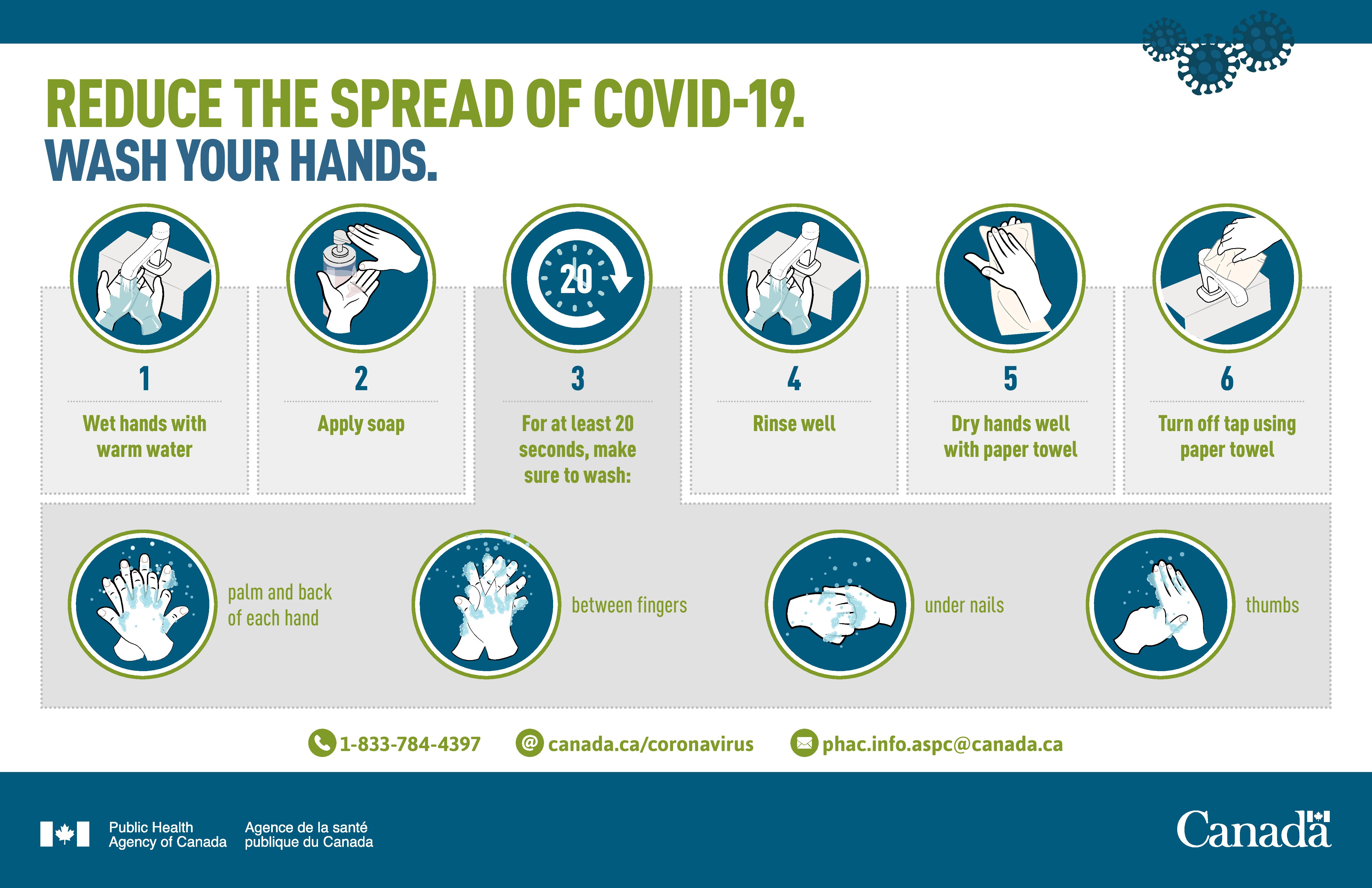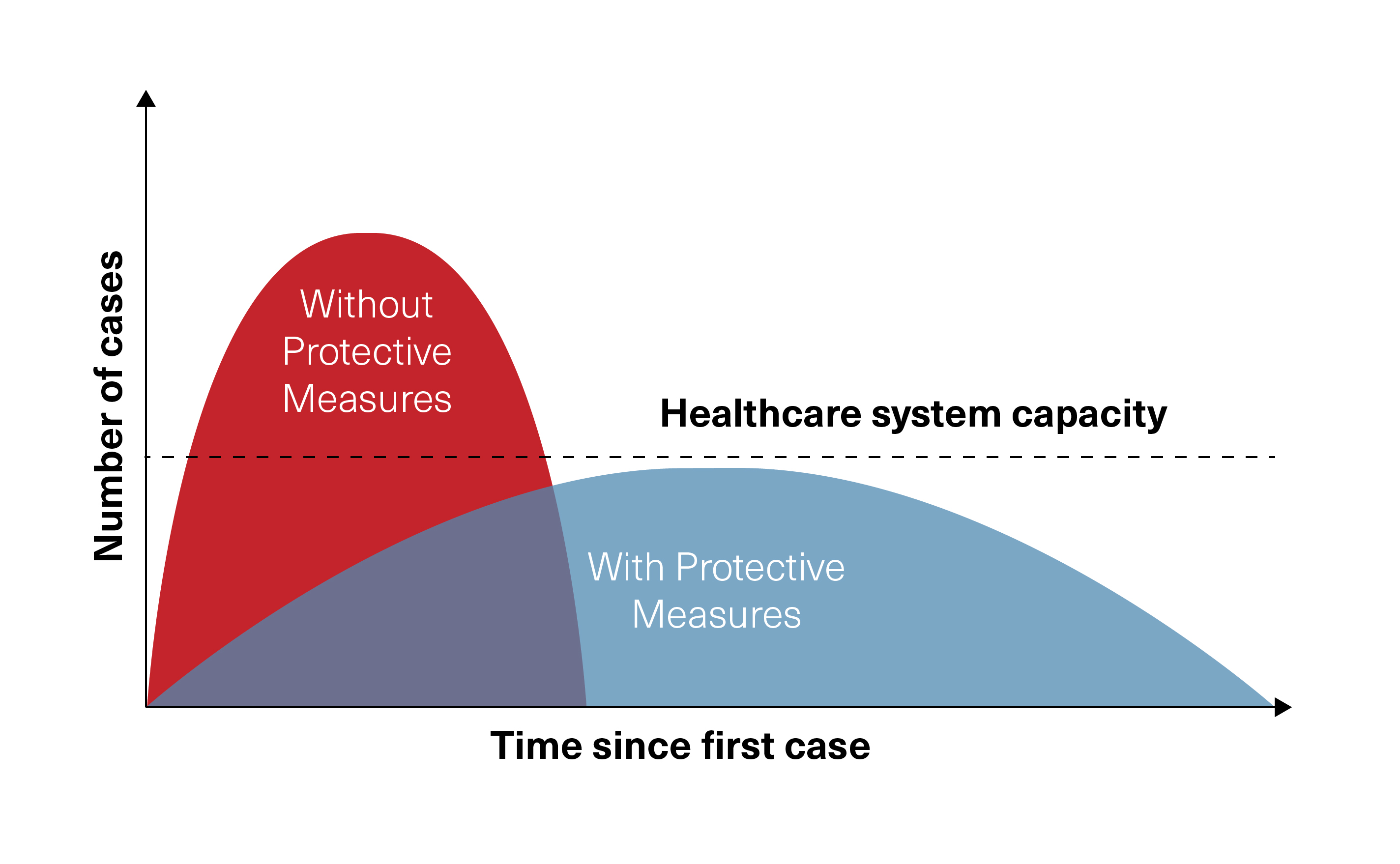The Covid-19 (also referred to as coronavirus) Pandemic is an unprecedented global event. It has changed the way we live, work, and connect with each other. Since the virus emerged a few months ago in Wuhan China, it has spread rapidly around the world, dramatically affecting populations from Iran to Italy, France, the U.K., the U.S., and Canada. On March 11, 2020, the World Health Organization declared the global outbreak of COVID-19 a pandemic.
Every day, we see reports of increasing numbers of cases, far-reaching measures governments are taking to curtail the spread and economic effect of the virus and potential progress in the development of vaccines.
The sheer volume of information (and misinformation) can be overwhelming and add to our already elevated stress levels. We know that the negative economic effects of the pandemic can be particularly severe for newcomers. Not to mention the emotional and psychological effects of being away from home during this crisis. We’re here to help. First things first, let’s get you some reliable, trustworthy information.
What exactly is COVID-19?
According to the World Health Organization (WHO), coronaviruses (CoV) are a large family of viruses that cause illness ranging from the common cold to Middle East Respiratory Syndrome (MERS-CoV) and Severe Acute Respiratory Syndrome (SARS-CoV). This strain of coronavirus disease, known as COVID-19, was discovered in late 2019.
The symptoms of COVID-19 (the particular coronavirus we are dealing with) are similar to those of the common cold or flu. These may include fever, cough, shortness of breath and breathing difficulties. In more severe cases, the infection can cause pneumonia and even death.
What makes the situation more difficult is that people who are infected with COVID-19 may have little to no symptoms and may not even know they have symptoms of COVID-19, while being contagious to others.
| Those at greatest risk for developing more severe COVID-19 disease include people aged 65 and over with compromised immune systems, or with underlying medical conditions. In the most severe cases, infection may lead to death. |
|---|
How to protect yourself and your family
In Canada, each cold and flu season comes with a list of steps you can take to reduce your chances of catching a cold or coming down with the flu: Wash your hands, don’t touch your face, and avoid shaking hands or close contact, especially if you feel like you might have either.
Taking this approach, dialed up to meet the severity of coronavirus, can help reduce the risk of infection or spreading infection to others:
- Washing your hands often is a good start. Use soap and warm water and wash for 20 seconds, especially after using the washroom or when preparing food.
- When you are in a situation where soap and water are not available, use an alcohol-based hand sanitizer.
- If you cough or sneeze, do so into a tissue or the bend of your arm. After disposing of your tissue, wash your hands.
- Avoid touching your eyes, nose or mouth. You might be surprised how often we do this.
- Avoid touching surfaces in public places, and clean high-touch surfaces at home or work frequently with regular household cleaners or diluted bleach (1 part bleach to 9 parts water).

Source: Government of Canada
Check your Provincial government sites to find out about regulations and programs, self-assessment and self-monitoring. For those in Ontario, you can use this tool to locate your public health unit.
Provincial and territorial information on COVID-19
| Alberta | Northwest Territories | Prince Edward Island |
| British Columbia | Nova Scotia | Quebec |
| Manitoba | Nunavut | Saskatchewan |
| New Brunswick | Ontario | Yukon |
| Newfoundland and Labrador |
Social Distancing: A new phrase for a new environment
As part of the Canadian approach to this unprecedented situation, we are working together by staying apart. By changing our habits we can all do our part to reduce close contact. It’s not easy, but according to Health Canada, social distancing is proven to be one of the most effective ways to reduce the spread of COVID-19.
Restaurants have been closed, concerts and festivals postponed, and professional sports have been paused. We should follow suit and avoid large group gatherings. Even changing our basic greetings from a handshake to a wave, a nod or elbow tap can help. As we have learned, older people and those with compromised immune systems are at higher risk, so let’s take care to limit physical contact with them. But don’t forget to phone or video call.
What is flattening the curve?
Flattening the curve refers to controlling the spread of COVID-19, specifically related to our healthcare system and its capacity to treat cases. Without precautions, the number of cases mounts rapidly, causing the curve to spike, exceeding the system’s capacity, taxing resources and taking a toll on health workers.
With proper precautions like handwashing, and thoughtful actions like social distancing, the number of cases grows far less quickly, essentially flattening the curve, allowing the system to function within its capacity and to cope with the demands of the pandemic.

Staying connected while remaining socially distant
By following the science-based advice from our national and provincial health authorities, we can each do our part to protect our community by curtailing the spread of coronavirus. But we are social beings. We need to connect with the people we love, and they need to hear from us. Being socially distant makes this difficult, but we are fortunate to live in a time where technology makes this possible: Many of us can work from home, and we can all reach out to others. Check in with friends and family through video chats, and keep in touch with your network any time, anywhere with the Arrive mobile app.
Staying well informed will help us all stay well
The Government of Canada coronavirus website is a key source for information regarding government plans and programs. The Public Health Agency of Canada has the latest update on the outbreak, as well as advice on preparation, prevention, and more. CBC is Canada’s public broadcaster, and you may find it to be a reliable source for updates during this time of flux. For a more global view, the World Health Organization site is the place to go.
Staying strong together
At Arrive, our goal is to help newcomers with life, career, and finances in Canada. Nothing has affected every part of our collective lives more than this pandemic. Let’s keep calm, wash our hands, and be kind to each other. We’re in it together and working together, we’ll get through it.
We are thinking of you and will be doing whatever we can to get you information and resources over the coming days and weeks. Be well.




